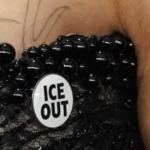

Republican presidential candidate Gov. Ron DeSantis’s (R-FL) signing of legislation barring Big Tech companies from content moderation, now under review in the courts, is a loose end in his legacy as he seeks the White House.
One of DeSantis’s biggest tech-related policy decisions was to back S.B. 7072, a bill that would allow Florida residents to sue a tech company for up to $250,000 a day for removing a statewide political candidate from its platform for more than two weeks, or notably less for county or local positions. The law passed in both the state House and Senate, and was signed into law on May 24, 2021. DeSantis presented it as a challenge to Big Tech companies like Facebook and Twitter, while critics argued it impeded free speech by requiring them to host unwanted content.
BIDEN IS LOSING THE GLOBAL SEMICONDUCTOR RACE
DeSantis’s bill was passed months after former President Donald Trump was banned from Twitter for his statements on Jan. 6, 2021, concerning the Capitol riots. The governor insisted that the bill was not about Trump, but about protecting Florida residents’ rights.
Industry groups quickly moved to oppose the bill through lawsuits. The conservative-leaning tech industry group NetChoice sued the state Attorney General Ashley Moody as well as DeSantis in May, alleging that the law breached the First Amendment. A federal judge ruled in NetChoice’s favor and blocked S.B. 7072 in June 2021. Moody motioned to dismiss the suit in district court by claiming that social media platforms are not protected as public forums, which the court granted. NetChoice appealed the case with the Eleventh Circuit Court of Appeals, which reversed the dismissal in May 2022.
Florida and NetChoice asked the Supreme Court to review the case in October due to the split decision between the district court and the circuit court of appeals. The court sought input from U.S. Solicitor General Elizabeth Barchas Prelogar in January regarding whether it should review the case. NetChoice confirmed that it is still waiting on a decision but expects to hear something “any day.”
S.B. 7072 is one of a series of culture war efforts by DeSantis that have elevated his profile among conservatives, including his battles with Disney and sending immigrants to Martha’s Vineyard.
DeSantis’s fellow Republican candidates have all slammed companies like Facebook and Amazon and expressed their intent to rein them in through federal regulations. They also often say they intend to stop them from limiting conservative speech.
Florida is not the only state to pass similar laws aimed at reining in Big Tech companies. Texas passed a similar one, although it was temporarily blocked by the Supreme Court. Other states are also considering similar legislation. Such bills have either stalled or failed to pass legal muster despite technology experts warning against the stifling effect that the legislation would have on speech.
While the ban is the most prominent tech-related bill passed by DeSantis, it is not the only one. The Florida governor signed into law a bill that would prohibit the use of a central bank digital currency.
CLICK HERE TO READ MORE FROM THE WASHINGTON EXAMINER
The Florida House and Senate are also considering a “Digital Bill of Rights,” which would require social media platforms to be transparent about their content moderation decisions or else be fined $100,000 a day. It would also allow users to opt out of sharing their data with Big Tech companies like Facebook or Amazon.




